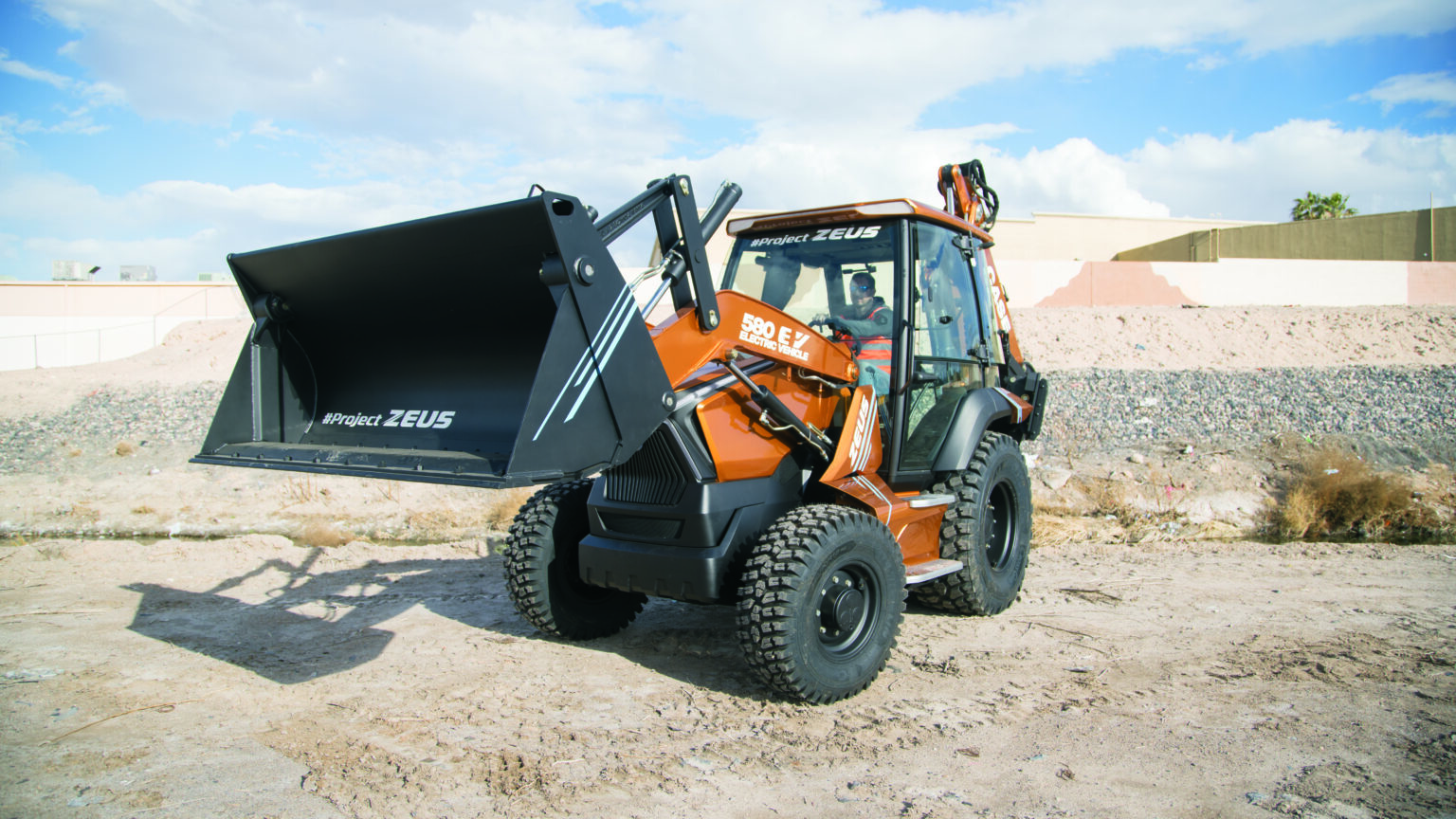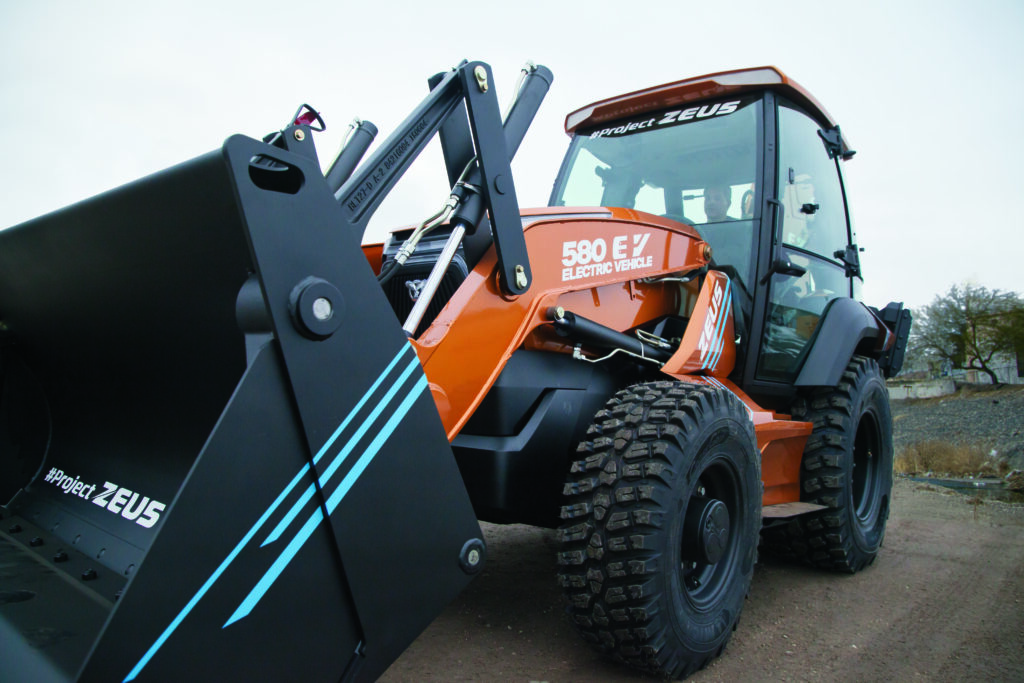Case unveils first electric backhoe loader
- PostedPublished 30 June 2020

Case Construction Equipment has unveiled the industry’s first all-electric backhoe loader, the 580 EV.
The US-based manufacturer says its new machine, the show model of which was dubbed “Project Zeus”, offers the performance of a diesel equivalent in conjunction with lower operating costs and zero local emissions.
It’s no light-duty backhoe loader, either. Power comes from a 480V, 90kWh lithium-ion battery pack, which is claimed by Case to support a conventional eight-hour workday. Charging is similarly reputed to take eight hours, using a three-phase 220V fast charger.
Case has also equipped the 580 EV with separate electric motors for the drive and hydraulic system, which together are claimed to offer improved performance during simultaneous operation – while the breakout force, which is the maximum the buckets can apply on a load, is claimed to match diesel-powered equivalents.

Using electric motors for the drive and hydraulic system should additionally make the 580 EV more consistent and easier to operate, granting enhanced effectiveness and efficiency.
Aside from the performance and tractability benefits, advantages such as air quality and quiet operation make it ideal for contractors that want or need to meet increasingly stringent emissions or noise regulations.
Although Case states that the 580 EV – of which two have been sold so far – has a higher purchase price compared with diesel-powered backhoe loaders, a fleet operator could expect to see a payback on that initial premium within five years.

This is due to lower running costs from the reduced need for routine maintenance and inspections as well as potential fuel savings.
“Operators will experience the same digging, lifting and craning performance achieved in a diesel-powered machine in a quieter, emissions-free work area,” said Eric Zieser, director of the global compact equipment production line at Case.
This is due to lower running costs from the reduced need for routine maintenance and inspections as well as potential fuel savings.
“Operators will experience the same digging, lifting and craning performance achieved in a diesel-powered machine in a quieter, emissions-free work area,” said Eric Zieser, director of the global compact equipment production line at Case.
“That’s the ultimate goal of our sustainability efforts – improve the world around us, make equipment more sustainable, and to do so while finding new ways to improve productivity and the experience of the people who use the equipment.”
- CategoriesIn Latest News
- TagsEV


